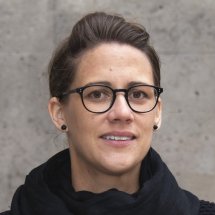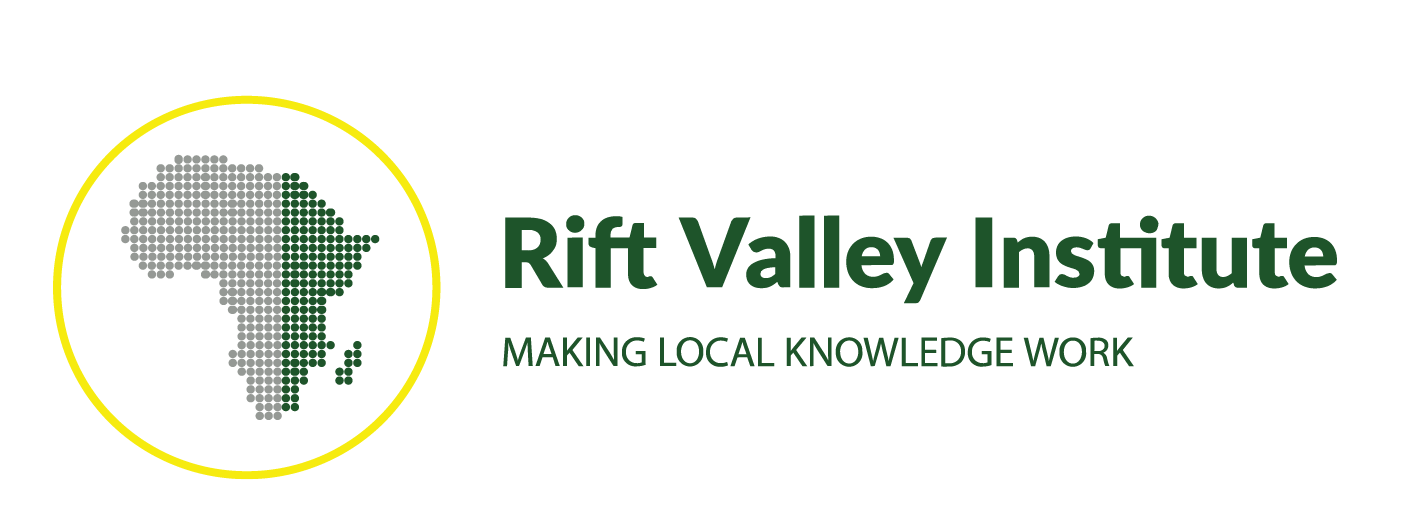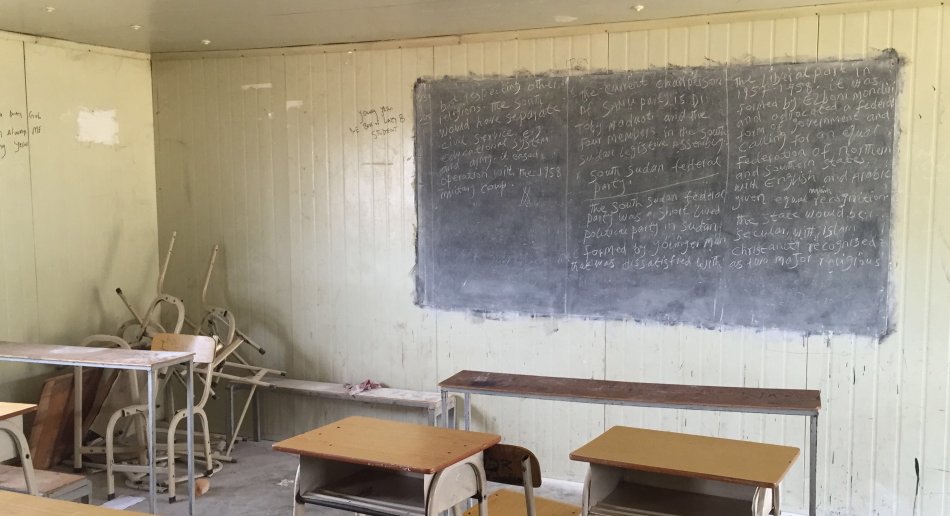
History education for reconciliation and justice: difficult history in divided societies - JUSTHIS
JUSTHIS explores how history is taught in classrooms across the Middle Nile Valley – Egypt, Ethiopia, Sudan, and South Sudan – where conflict and division have shaped both past and present.
The researchers behind JUSTHIS are working closely with teachers across the Nile Valley to understand what actually happens in classrooms when they teach “difficult history” – topics like war, colonization, and ethnic conflict. They’re analyzing curricula and textbooks, and observing history teaching to see how history is presented and what challenges teachers face.
While research often highlights the importance of teaching history from multiple perspectives, many teachers and accessible textbooks rely on single narratives that can reinforce stereotypes and deepen divides. JUSTHIS puts teachers at the center, recognizing their crucial role in shaping how young people understand the past and imagine the future.
Through curriculum and textbook analysis, classroom observation, and collaboration with educators, JUSTHIS investigates how multiperspectivity can support reconciliation and justice. The goal is to develop shared, sustainable teaching methods that help teachers navigate complex histories and promote peace – both regionally and globally.
By connecting countries with intertwined yet distinct histories, JUSTHIS offers a unique lens on how education can transform conflictual narratives into inclusive ones. The project highlights the power of history teaching to promote justice and reconciliation and the possibility of living peacefully together.
Doing research in conflict-affected areas is challenging. But the potential rewards are great. JUSTHIS aims to transform how history is taught – turning classrooms into spaces where young people learn to think critically, understand different perspectives, and imagine a more peaceful future
Research questions and work packages
The project seeks to answer the following research questions:
RQ1: How are ‘difficult histories’ of collective violence (e.g., direct, structural, cultural) reflected and represented in school curricula and textbooks (official history) in divided societies? - curricula
RQ2: How are ‘difficult histories’ (official and unofficial) enacted in classroom teaching of secondary-level history, and how do teachers navigate between singular or multi-perspectival antagonistic and agonistic historical narratives? – teachers and students
RQ3: How are ‘difficult histories’ of collective violence (e.g., direct, structural, cultural) reflected and represented in communities/throughout society (unofficial history) in divided societies, and how are these unofficial historical narratives reflected in students’ historical consciousness? students and society
RQ4: How can teachers and teacher students facilitate discussions of contested histories in divided societies, and what are the affordances and limitations of multiperspectival approaches vis-à-vis (other) everyday teaching strategies in such contexts? – teachers and teacher-students
RQ5: What does multiperspectivity look like in divided societies, and how can it bridge official and unofficial histories in addressing difficult history? - practical and theoretical advances
Work packages
The work packages will be implemented starting with WP1; WP2, WP3 and WP4 will be subsequently carried out simultaneously starting at the end of the first year. WP5 will be implemented in the second half of the four-year project period.
WP1: Curriculum and textbook analysis
WP1 relates closely to RQ1, exploring representations of difficult histories and possible conflict dynamics present in curricula and textbooks, and thus the textual and visual material that school teaching supposedly is based on.
The team will advance a synchronic comparative/cross-country/transnational analysis of curricula and textbook representations of (peaceful/ conflicting) historical encounters and interactions across time and space in our four case study countries. Analysis will include histories of political, economic and cultural domination and oppression (e.g. through slavery and colonization) and armed and civil resistance and war through a national and regional lens. The history of education itself will be crucial in framing and understanding curriculum and textbook representations and discourse.
WP1 will ultimately create a baseline expanding the existing pool of knowledge of curricula and textbooks in the selected cases, with a focus on secondary education. Such a baseline is particularly relevant in this region, where curricula and textbook narratives are strictly prescribed by the state and where teachers (can) dispose of few, if any, alternative educational resources – making state-sanctioned histories mediated through these official educational media especially powerful. Dr. Denise Bentrovato is responsible for the work package.
WP2: Classroom research
WP2 will respond to RQ2, its aim being to enable empirical advancements concerning teachers’ interpretations and enactments of the curriculum and textbooks analysed in WP1.
This work package focuses on South Sudan and Ethiopia. Both country cases will include a similar research design using focused ethnographic fieldwork (Skårås, 2016), and involve semi-structured interviews with history teachers and ethnographic observation of history lessons in selected secondary schools.
Through these methods, the team aims to gather rich empirical data about how ‘difficult histories’ are reflected and represented in classroom teaching of secondary-level history, and to explore how teachers navigate possible tensions between official histories (as often mediated via curricula and textbooks, WP1) and unofficial histories (as often transmitted within families and communities, WP3). Several team members will take part in the data-intensive focused ethnographic fieldwork in each country. Merethe Skårås will be responsible for WP2.
WP3: Unofficial histories
WP3 focuses on “unofficial” histories circulating in communities in the four selected cases, including histories circulating in the diaspora. It responds to RQ3 in uncovering tensions between “official” and “unofficial histories”. The WP involves semi-structured interviews with community stakeholders, including parents, religious leaders, community elders, representatives of NGOs and civil society organisations, in selected case study sites in each country.
With a focus on oral history and indigenous ways of knowledge transmission, the WP will explore vernacular histories circulated via songs (e.g. songs from Sudan and South Sudan), and teaching spaces outside of schools. WP3 will further include youth voices through an essay writing competition (appr. 50 student essays from each country written outside of school hours), and interviews with youth in the case study communities.
Previous research using student essays has proven that they contribute to unpacking the collective memory circulating in the communities and transmitted through generations, therefore uncovering unofficial history. Aiming to reach the large number of school dropouts and less literate majority population in each site, we will host a poetry/song competition where participants of all ages will be supported to submit poems or songs focused on historical narratives alive in the community. Dr Nicki Kindersley is responsible for WP3.
WP4: History didactic
WP4 will directly work with teachers and teacher students of history across the region to inform and advance practices in teacher education programs. WP2 and WP3 will bring together a network of teachers to build a community of practice in WP4.
The WP runs parallel to the other work packages. In this way, JUSTHIS will contribute to increased knowledge on history, research methods and didactics in the selected case countries.
Through participatory methods, this WP aims to answer RQ4 to explore how and in what ways teachers can navigate tensions and address ‘difficult histories’ in secondary-level history through approaches that can accommodate multiple, often opposing, views in safe, productive and inclusive ways. Merethe Skårås is responsible for WP4.
WP5: Comparative analysis and dissemination of results.
WP5 responds to RQ5 and produce the cross-cutting comparative analysis and high-level empirical data that will inform global academic and policy work. The researchers will build a solid, transparent foundation for comparisons within and between countries as well as across work packages combining data from interviews, text analysis and observation.
Using multiple investigators across different national contexts will help increase the project's creative potential through sharing complementary insights and different perspectives and enhance the data validity. The combination of case studies will enable insight into a variety of practices as we know that the context of ongoing conflict and open violence as present in all cases influence the classroom environments and the social and political spaces for discussing difficult and sensitive histories.
Dissemination of results will be a central part of this WP through the use of participants' professional networks, webpage and journal articles in addition to “giving back” to the local communities in the selected case countries. Dr. Yosa Wawa is responsible for this work package.
Research team
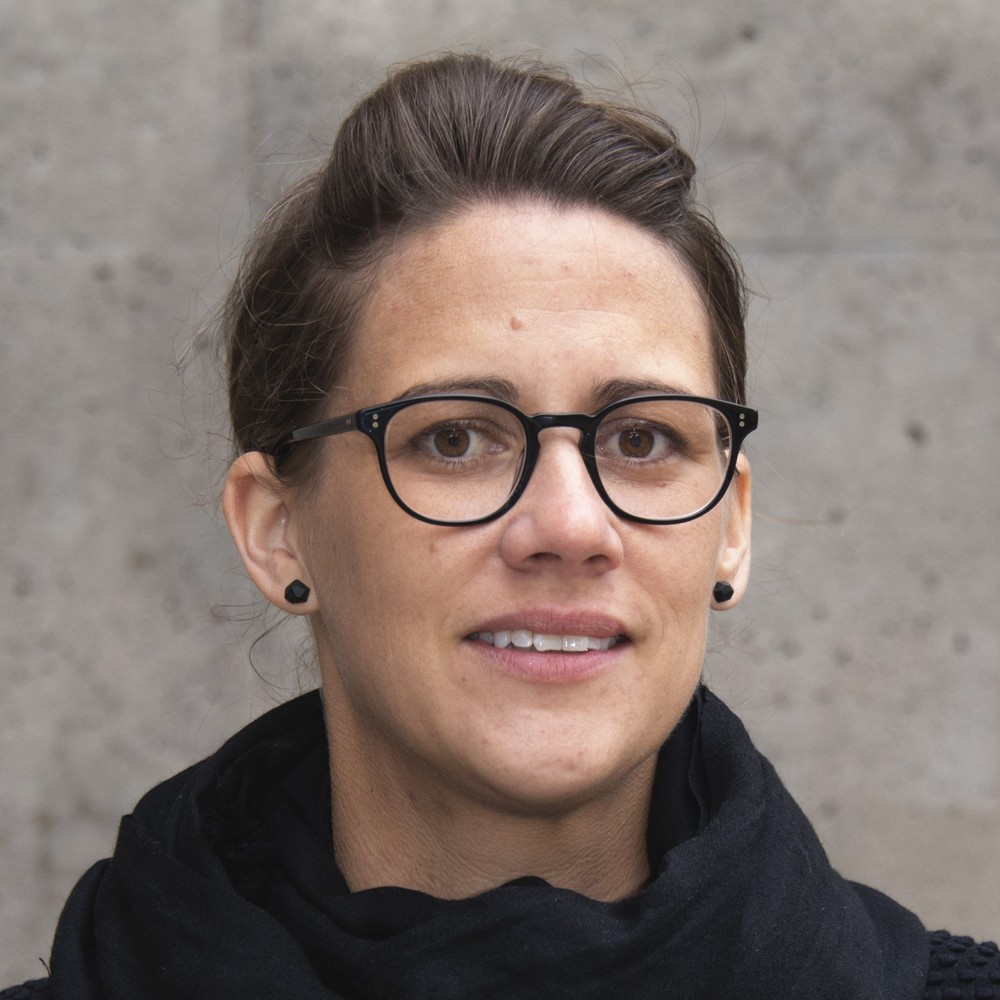
Project manager, Merethe Skårås is an Associate Professor of education at MF School of Theology, Religion and Society. She has been the head of the teacher education program at MF for several years and has been involved and published widely within the field of teacher education, teacher professional development and education in emergencies. She has been the PI of focused ethnographic research projects focusing on education in emergencies (Sudan and South Sudan) since 2008, and has a strong network of practitioners and educational stakeholders in the field. Her research has been supported by Save the Children Norway, The Nordic Africa Institute and the Global Awareness in Teacher Education program with George Mason University (GMU).
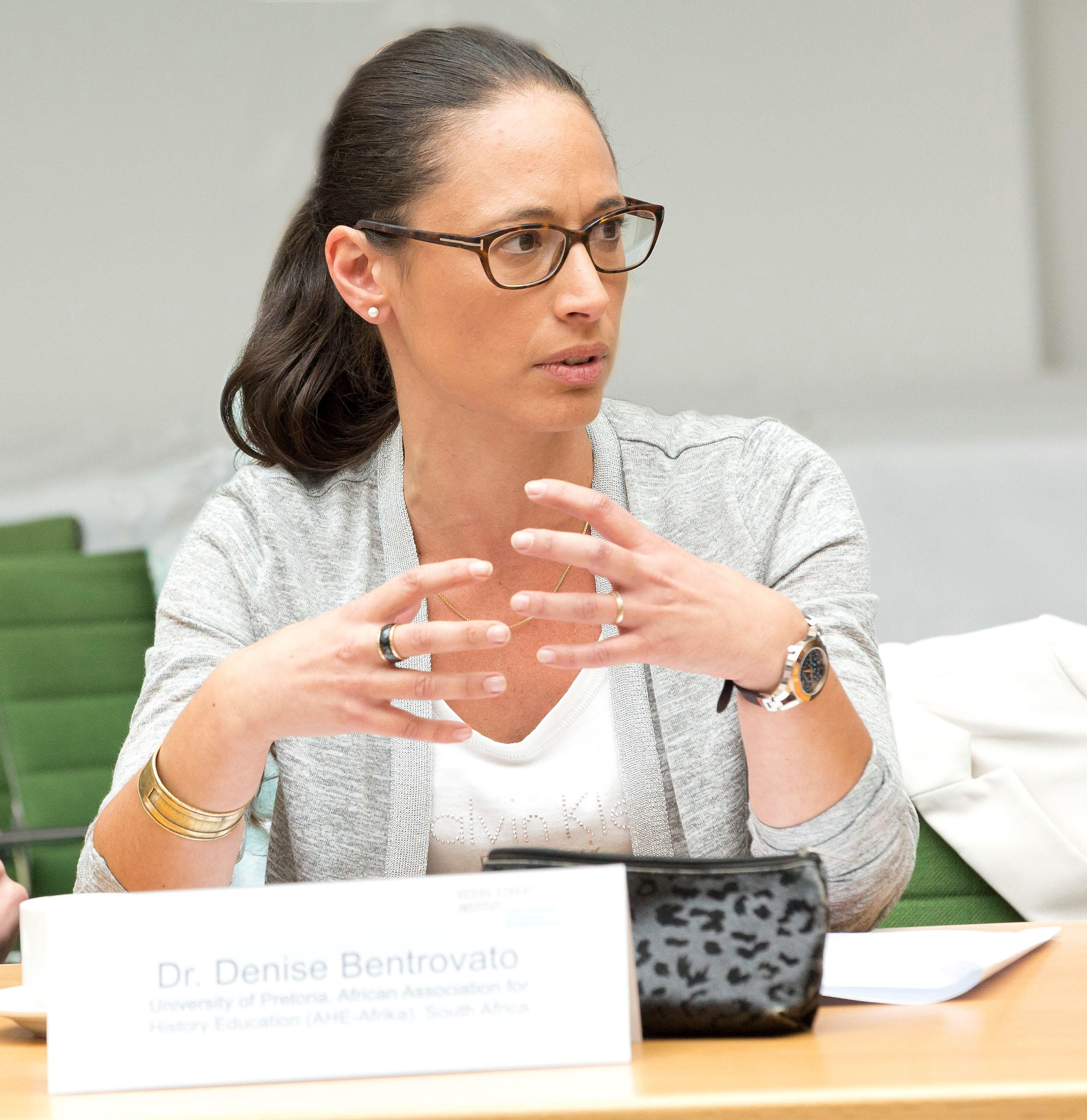
Dr. Denise Bentrovato is a Senior Researcher and Extraordinary Lecturer in history education at the University of Pretoria. She is an Africanist historian, a history didactician and a peace-and-conflict scholar who has worked across the African continent, including East Africa, for the past two decades. She has an extensive research record on textbooks and curriculum analysis and their representations of violent pasts in African contexts. She is the co-founder and co-director of the African Association for History Education, the President of the International Research Association for History and Social Sciences Education, and a UNESCO consultant.
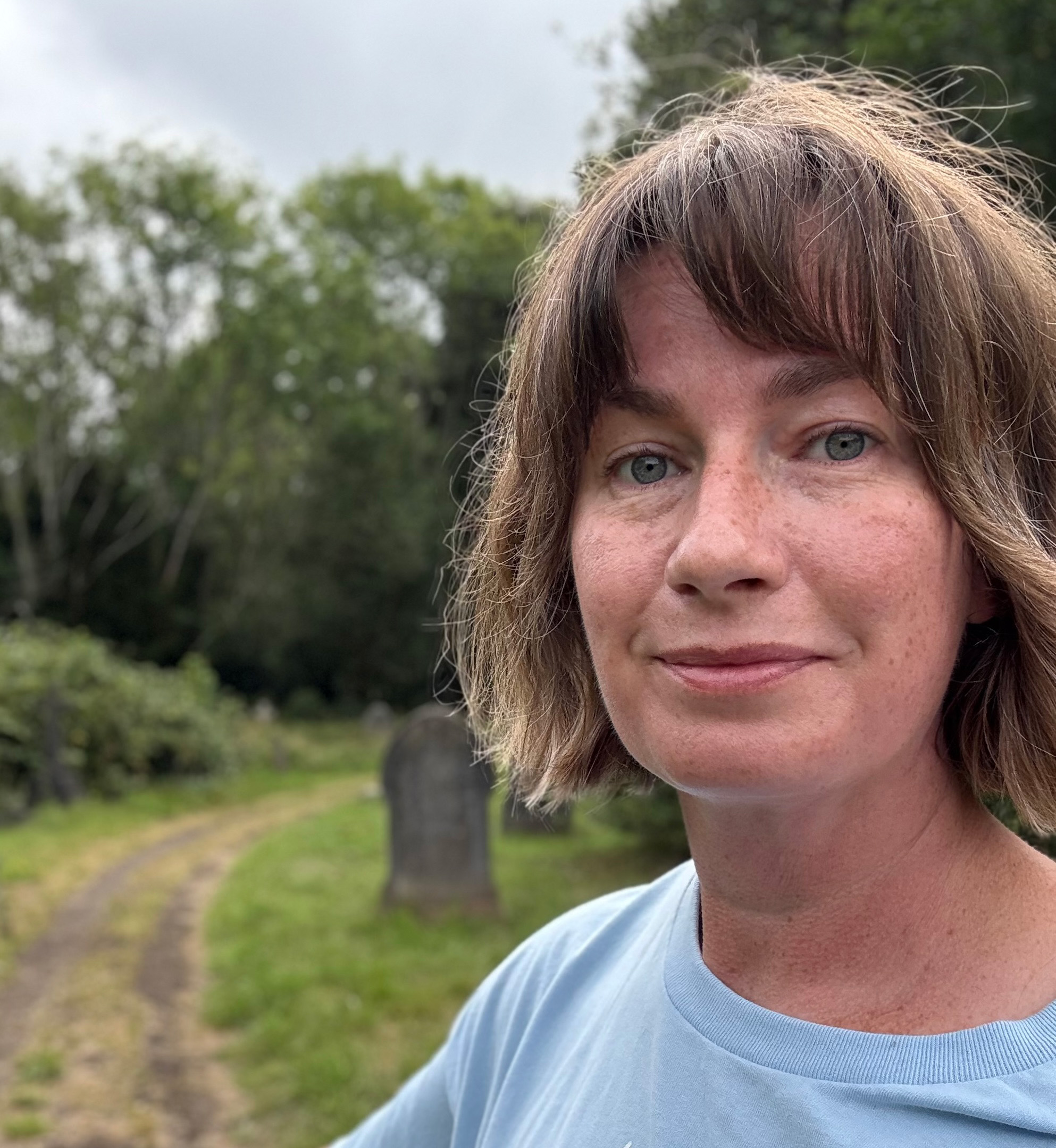
Dr. Nicki Kindersley is a contemporary historian and Senior Lecturer at Cardiff University, working on histories of political education, intellectual cultures and working lives in South Sudan and its regional borderlands in Sudan and Ethiopia. Dr. Kindersley led a poetry competition in 2024 and collaborative song collection and translation projects in South Sudan since 2013, with extensive networks among creative practitioners and vernacular historians in Sudan and South Sudan. She is a Fellow of the Rift Valley Institute.
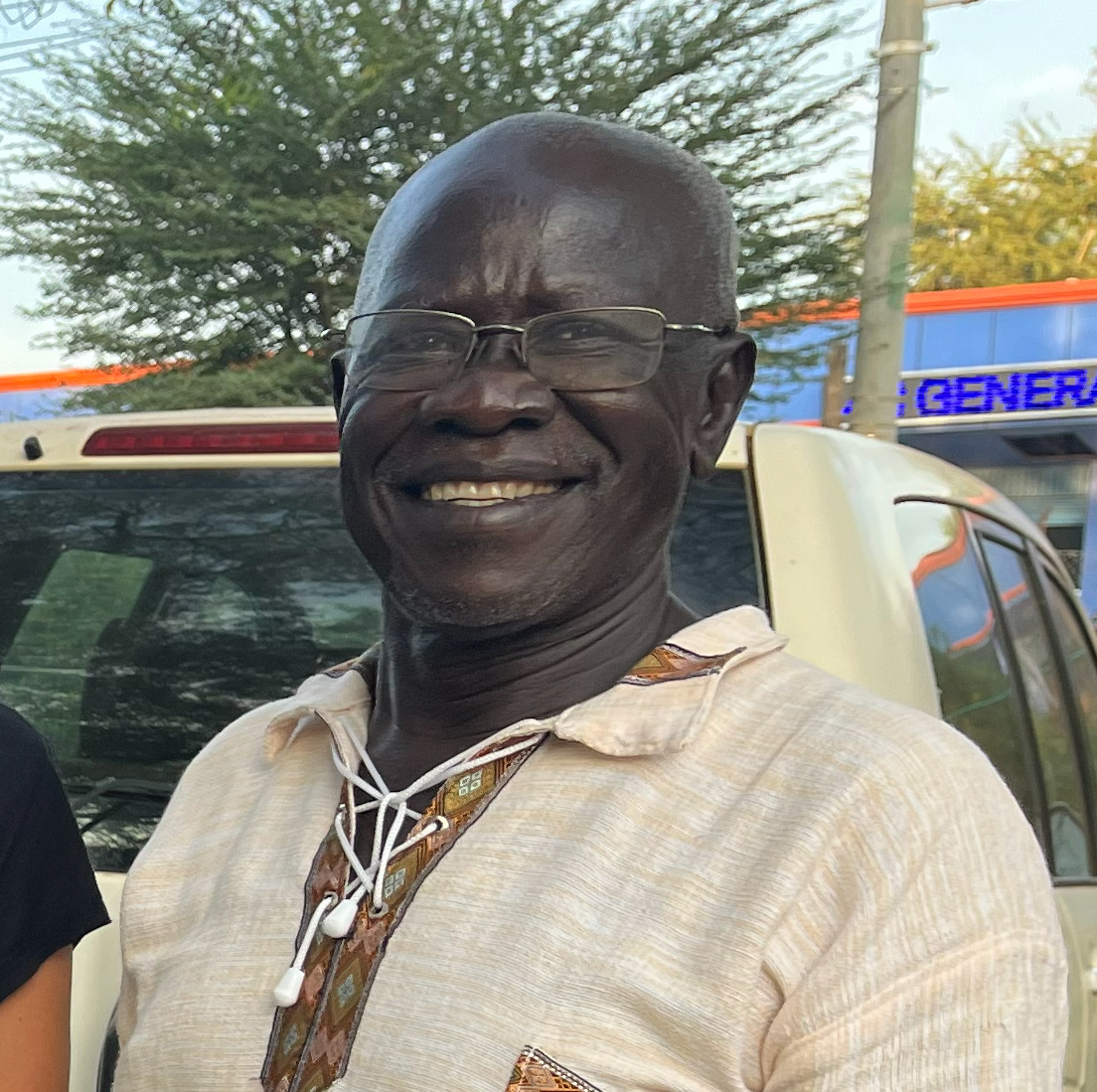
Dr. Yosa Wawa is Professor and Chair of the History Department at the University of Juba, School of Education. Dr Wawa has extensive experience in research on history in the Nile Valley and played a central role in textbook and curriculum development in South Sudan. He supervises several Masters and PhD students of history. He is a fellow of the Rift Valley Institute.
Partners
The Rift Valley Institute (RVI) is an independent, non-profit organization, founded in Sudan in 2001, currently working in eastern and central Africa. The aim of the Institute is to advance useful knowledge of the region and its diverse communities, bringing a better understanding of local realities to bear on social and political action. The RVI works with institutions in the region to develop and implement long-term programmes that combine action-oriented research with education and public information.
Other researchers
Added to the principal researchers, other researchers will contribute to the project.
A PhD will be employed in the project during the first year. The candidate will be expected to have knowledge of history education and diversity in education in Ethiopia.
Dr. Semir Yusuf, the head of RVI Office in Ethiopia, will advise on the project, assist with access and security issues from a local viewpoint through their offices in Juba and Addis Abeba. He has decades of experience in teaching and researching and has published extensively on topics such as conflict dynamics, constitutional design, identity politics and democratization. His regional expertise centres on the Horn of Africa, particularly Ethiopia which is a valuable contribution to the project.
Advisory board
The project team will work closely together with an advisory group including key scholars in the field. The members are
Dr. Kuyok Abol Kuyok, The Minister of General Education and Instruction, (MoGEI), South Sudan and Adjunct Associate Professor at the University of Juba.
Girma Negash Ture, Associate Professor Department of History, Addis Ababa University, Ethiopia.
Eckhardt Fuchs, Professor and Director of the Leibniz Institute for Educational Media, Georg Eckert Institute.
Ellen Vea Rosnes, Professor in intercultural communication and global studies, and Vice Dean for Research at the Faculty of Theology and Social Sciences, VID Specialized University.

